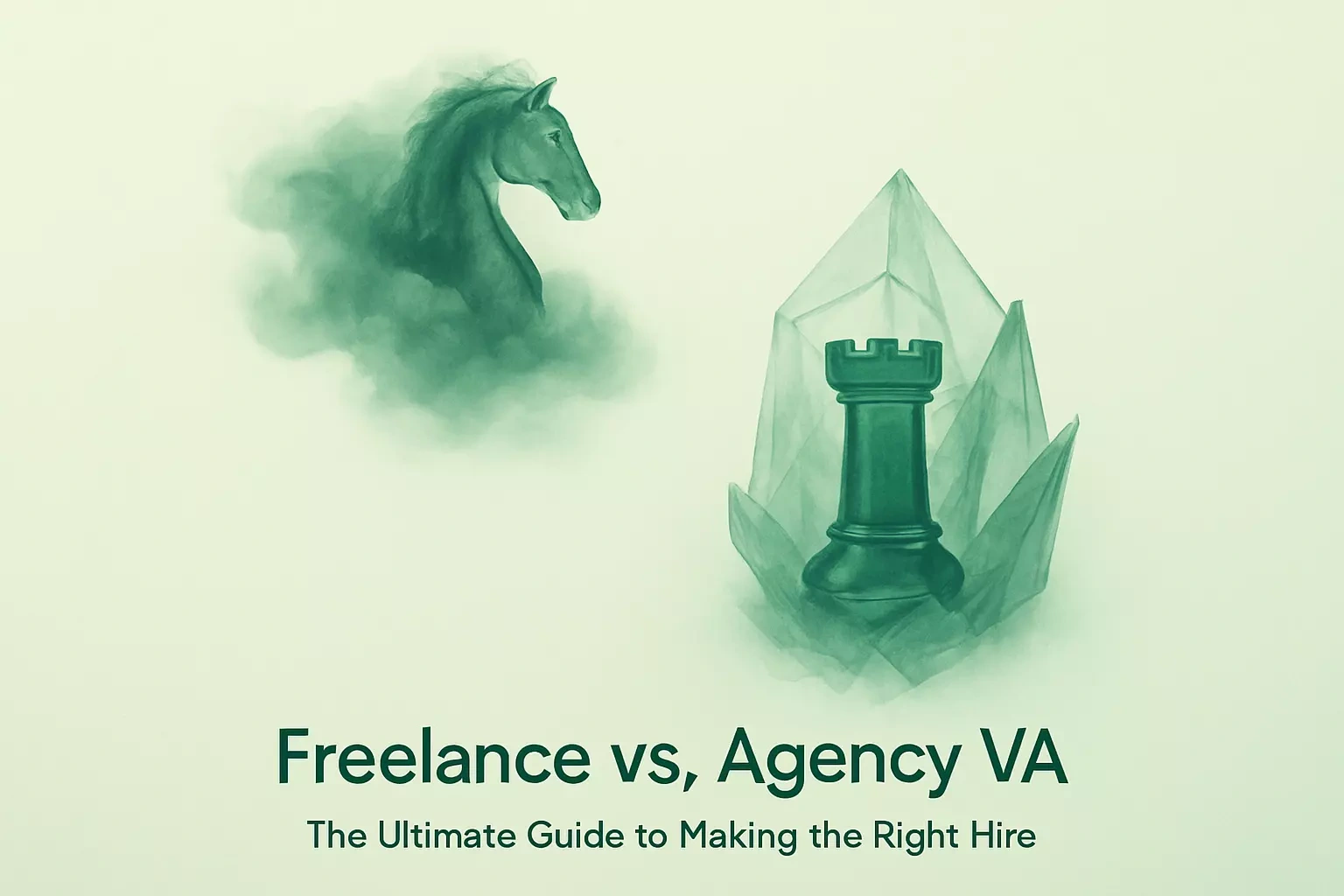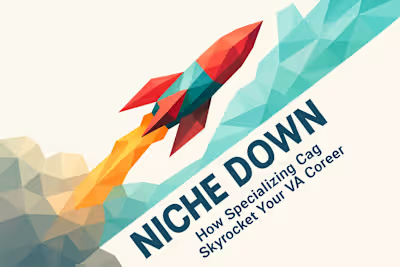Freelance vs. Agency VA: The Ultimate Guide to Making the Right Hire

Freelance vs. Agency VA: The Ultimate Guide to Making the Right Hire
Understanding the Freelance VA Model
Direct Collaboration and Communication
Flexibility for Project-Based Work
The Pros and Cons of Hiring a Freelance VA
Advantage: Cost-Effectiveness
Advantage: Specialized Expertise
Disadvantage: Reliability and Availability
Exploring the VA Agency Model
Vetted Talent and Quality Assurance
Scalability and Team Support
The Pros and Cons of Using a VA Agency
Advantage: Reliability and Backup
Advantage: Saved Time on Hiring and Training
Disadvantage: Higher Costs
Key Factors to Consider When Choosing
Budget and Cost Analysis
Project Scope and Duration
Need for Reliability and Security
Making Your Decision
References
Freelance vs. Agency VA: The Ultimate Guide to Making the Right Hire
Understanding the Freelance VA Model
Direct Collaboration and Communication
Flexibility for Project-Based Work
The Pros and Cons of Hiring a Freelance VA
Advantage: Cost-Effectiveness
Advantage: Specialized Expertise
Disadvantage: Reliability and Availability
Exploring the VA Agency Model
Vetted Talent and Quality Assurance
Scalability and Team Support
The Pros and Cons of Using a VA Agency
Advantage: Reliability and Backup
Advantage: Saved Time on Hiring and Training
Disadvantage: Higher Costs
Key Factors to Consider When Choosing
Budget and Cost Analysis
Project Scope and Duration
Need for Reliability and Security
Making Your Decision
References
Posted Jun 30, 2025
Torn between hiring a freelance virtual assistant or going through an agency? This guide breaks down the costs, benefits, and drawbacks of each to help you decide.










